I was given a Multia a few months ago from a former Digital employee. He told me that the machine could not start (no sign of life, even fan didn’t spin on). I cleaned it, checked all cables and the machine started without any issue. However, after an hour of work, screen went black and the machine was not able to boot anymore (no smoke effects).
I thought this was maybe the well-known issue with the two chips on the bottom side of the system board dying due to overheating. Ordering these chips looked easier than doing any diagnostic so we ordered the replacement and “fixed” the board. However, it didn’t help. My Multia still blinks the error code E – “Failed while configuring memory”.
These chips are octal bus transceivers – they are between the CPU and RAM slots. There are nine of them (8x8bit for data, 1x8bit for ECC). Two of them on the bottom side. We did some checks using oscilloscope to see what was happening there. At least OEAB signal was changing rapidly. !OEBA seemed H all the time (cannot tell for sure, maybe there were just too few changes). There was some data on two out of the nine chips. The rest of transceivers had no visible data receiving from the CPU (L).
We don’t have a usable logic analyzer at the moment so it is hard to move further. I tried to find some documentation and block diagrams of the machine with no success (I have a reference board design for the CPU though). Also, all Multia pages just mention that there are issues with the two transceivers that we already replaced… but there is no further explanation how the machine behaves if these are faulty (to check that we are on the right way).
Any ideas what to do next? Burn it with fire?
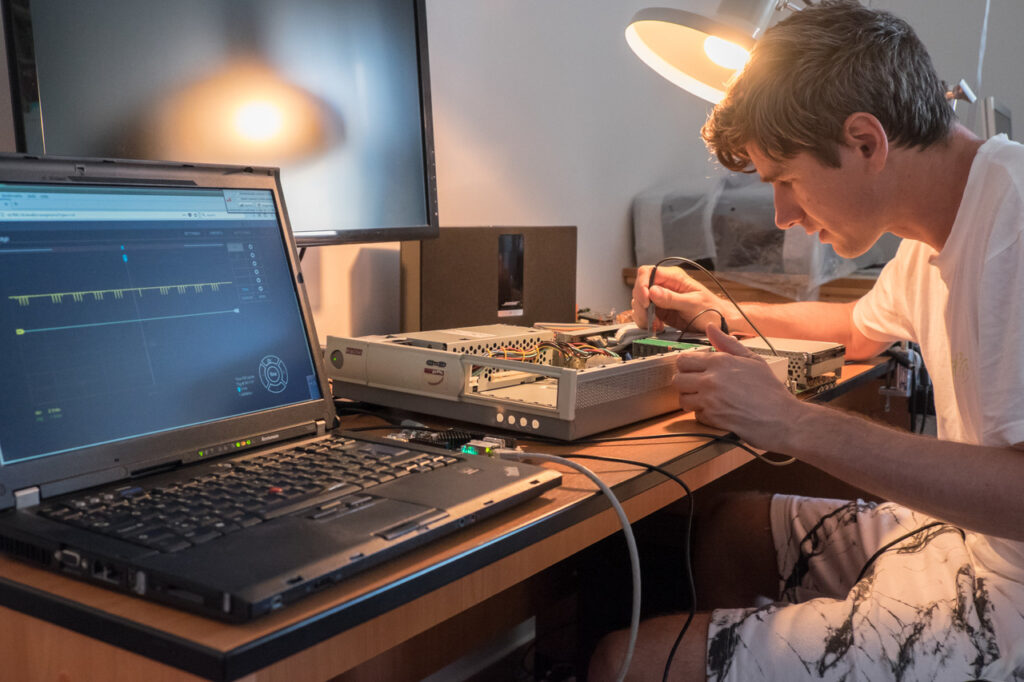
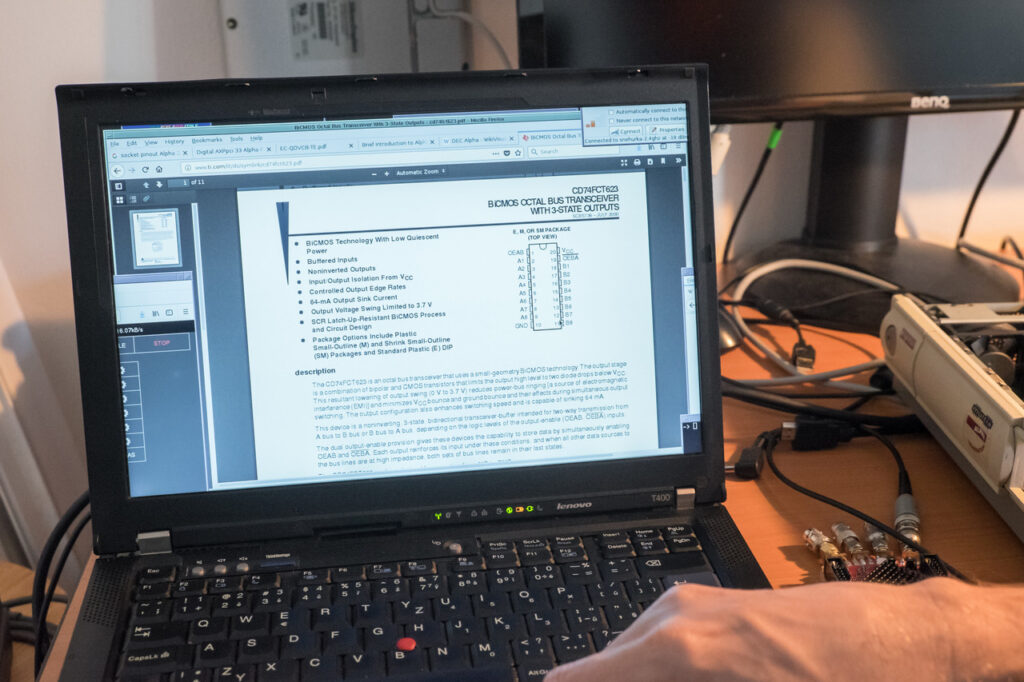
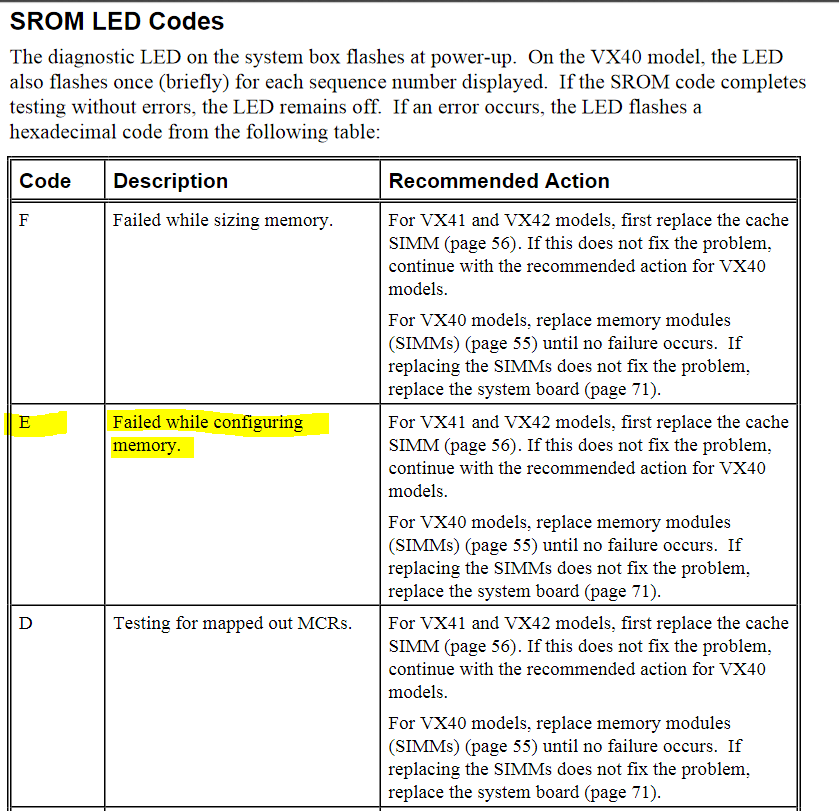
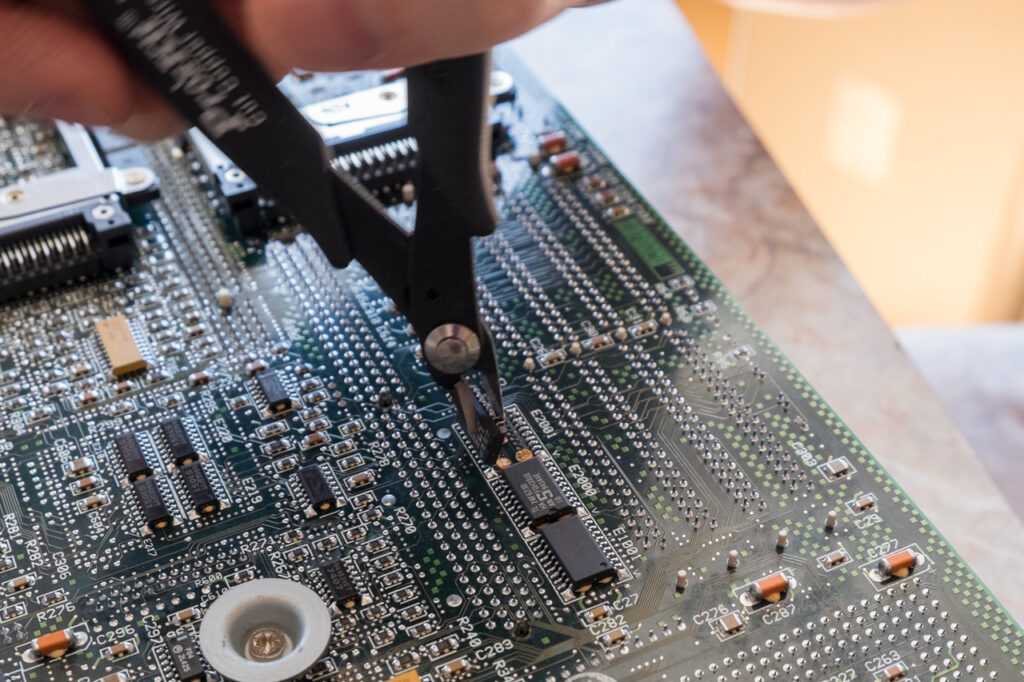
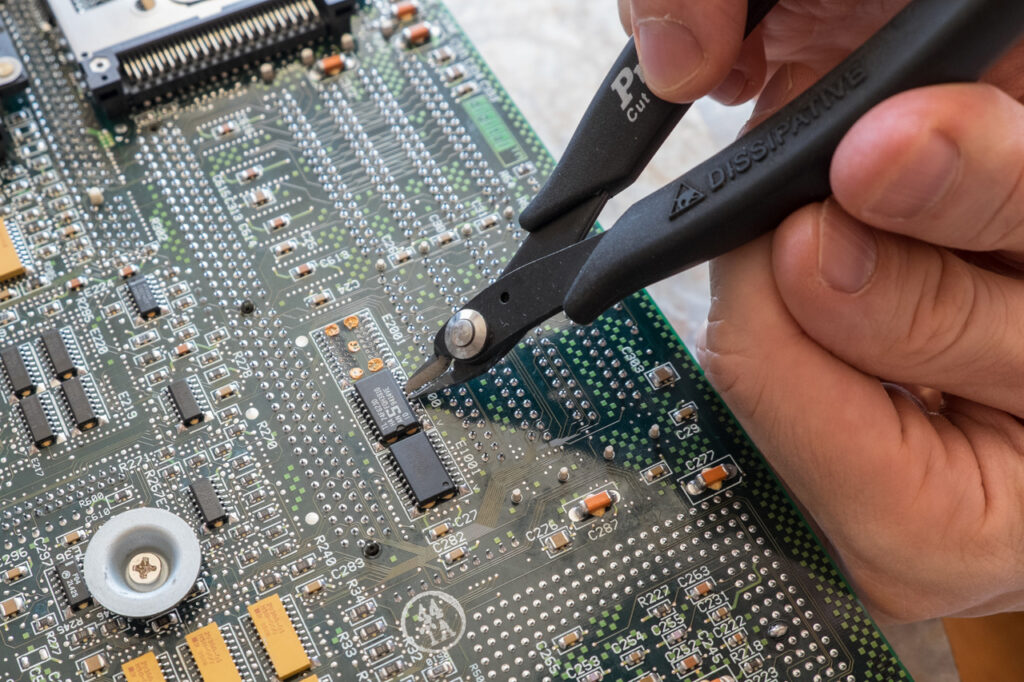
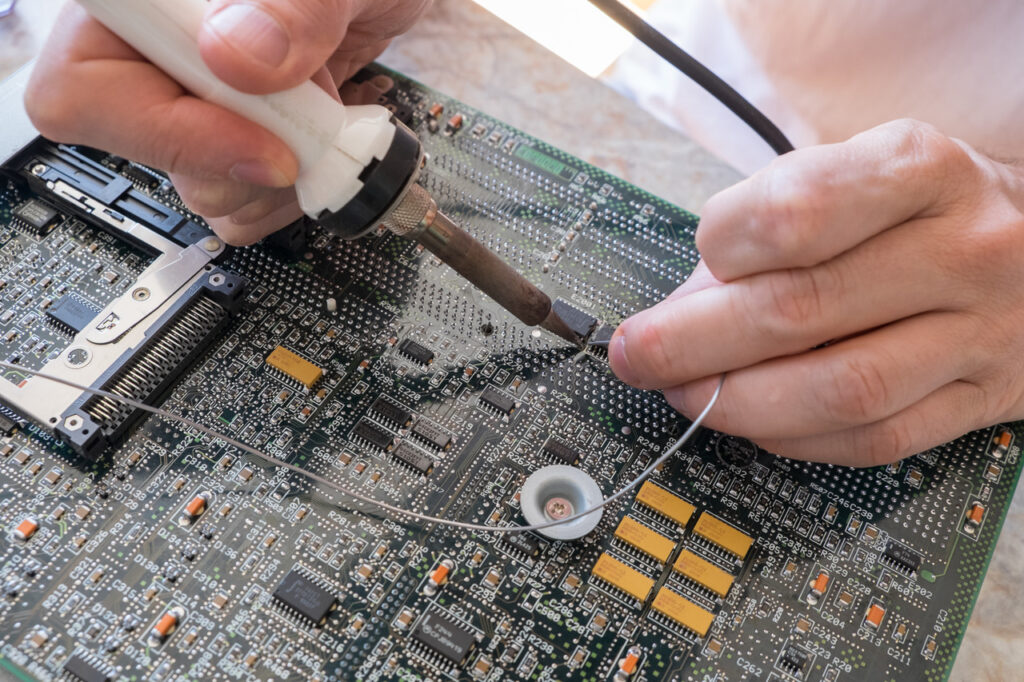
I am having similar issues with a pair of Multia VX40 systems. At least one of them had the overheating chips replaced by a previous owner. Most of the time when I power them on, I don’t get any diagnostic blink codes.
Were you ever able to resolve the issues with yours?